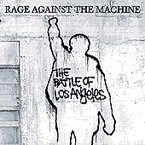In this Great Day, the Royal Court of The Hague is pleased to announce several new Edicts at once, may the citizens of the Netherlands take heed of this Great Declaration.
His Majesty the King, Willem Orange-Nassau I of the United Kingdoms of the Netherlands, is pleased to announce that the grievances of the citizens of Southern Netherlands -- otherwise known as Belgium -- has been addressed in this Great Edict, a result of the cooperation of the loyal citizens of Southern Netherlands and the King. The Assembly of the Netherlands will be reformed as a result.
The Edict of Brussels
1. The United Kingdom of the Netherlands will now collect tariffs on foreign commodities including, but not limited to, wheat.
2. The United Kingdom of the Netherlands will expand the seat of the Assembly to give the people of the Southern regions a proper representation in His Majesty's government, as well as expanding the Assembly's authority to include veto on the domestic issues deemed oppressive. However, should that happen, the King reserve the right to issue a plebiscite in which the population entire nation, not only the elite, will vote. He cannot does that more than once in three months, save in crisis; in effect, this will put the Assembly into an almost equal position as the King.
3. The King is confirmed as the head of the nation both in legal and practical terms. His power cannot be superceded by any form of legal document.
4. The King reserves the right to issue military offices in all areas of the nation. He, however, will be willing to listen to grievances filed by the local population.
5. The United Kingdom of the Netherlands will, from now, establish tolerance of religion. All citizens of the Kingdom will now be able to choose their religion of choice.
The lawful citizens of all the Netherlands, take heed at this glorious day of justice.
-------------------------------------------------------------
Also, in the cause of the development of the United Kingdoms of the Netherlands, and the welfare of its citizens, another Edict has been issued to resolve the concerns of her people.
The First Edict of the Hague
1. The Edict confirms that the rights to property, to freedom of profession, and to freedom of religion belongs to all Dutch citizens.
2. The new Court of Appeals has been established. It shall, from now on, be open to receive grievances filed from all the Kingdom, whether they be from injustices of government officials, illegal threats, or legal disputes which cannot be resolved locally. It can only act at the grievances filed to it directly, or carried out in appeals from other courts, however. The Judges will be chosen by the King and select Assembly members and confirmed by the Assembly's authority. Justice, we are glad to declare, is a luxury that all in this Kingdom shall be able to afford.
3. Several new education institutions has been established and funded accordingly with His Majesty's personal wealth and the voluntary investment of private citizens of the Netherlands; their funding has taken a priority in the National investment:
The Hague Royal College, which includes:
- The Royal School of Navigation. Its charter indicates the goal of this institution to further enhance the skills of future Dutch mariners, captains of the Royal Navy, and private merchants who holds Dutch citizenship.
- The Royal School of the Army. Its purpose is to train future commanders of the Netherlands' army the worthy Art of War. Europe's most skilled military advisors and -- should they wish -- generals are invited to assume the professorships.
- The Royal Scholar's School of Humanities. Its charter indicates a wide range of cirriculum including the Humanities of the Renaissance and the Beaurecracy, stressing the legitimacy of Royal leadership and the philosophical views of Plato, among many others. This shall provide the world's top scholars in years to come.
The Amsterdam Royal University, which includes, but not limited to:
- The Amsterdam College of Laws
- The Amsterdam College of Humanities
- The Amsterdam College of Artisans, which shall teach the mastery a wide range of artisan occupations.
- The Amsterdam College of Economics
- The Amsterdam Council of the Merchants, whose membership will work in close cooperation with the University's professors in advising the King in the economic development of the Nation, and analyze as well as find solutions to today's economic problems.
The Brussels University, whose Charters and Colleges, as well as management authority, will be decided by the local Assembly, as the King willingly asserts. He invites the citizens of Brussels to take upon themselves the management of this most prestigious royally-approved institution. His Royal Majesty invites the citizens of Brussels to help fund the institution.
All three institutions, however, will be subject to the Assembly's authority at any time. The Board members are chosen with concern to merit, loyalty, and wisdom.
4. The governers Colonies of the United Kingdom of the Netherlands has been notified to carry out major reforms of the colonies, and is requested to send in plans of development and reform of their respective responsible areas to the Assembly within a month.
5. The Brussels Council of Merchant has been established; its purpose is the same to that of its Amsterdam sister; His Royal Majesty invites the Council members to closely cooperate with the University of Brussels, as well.






 Reply With Quote
Reply With Quote







Bookmarks